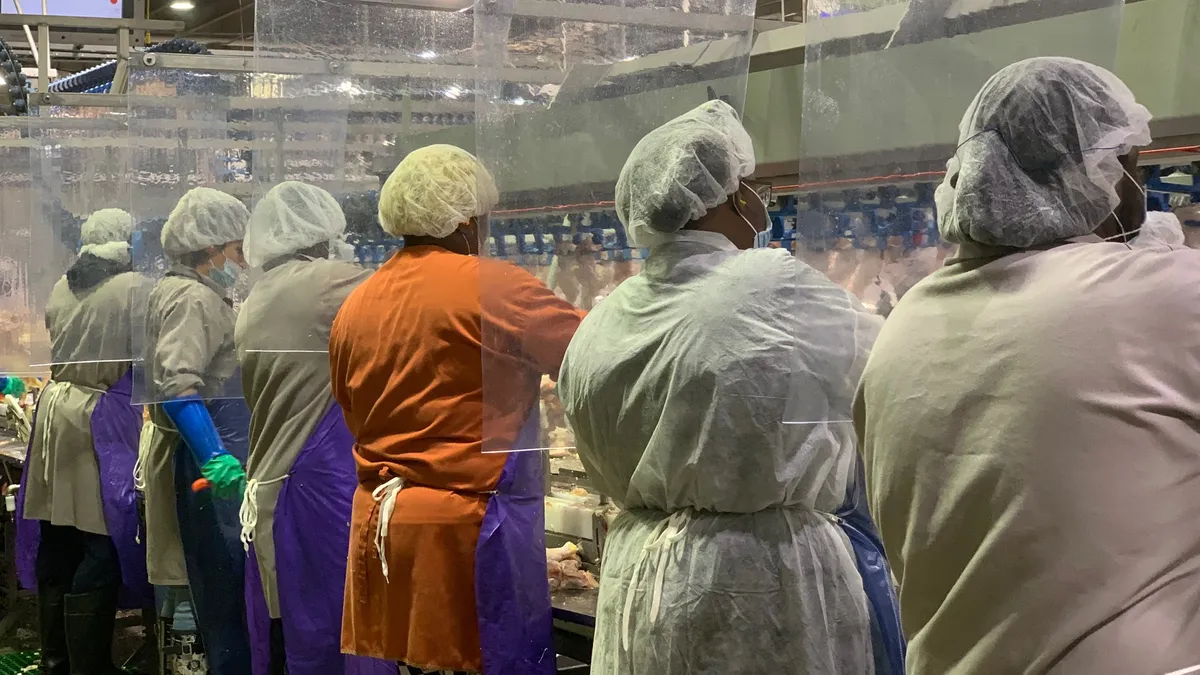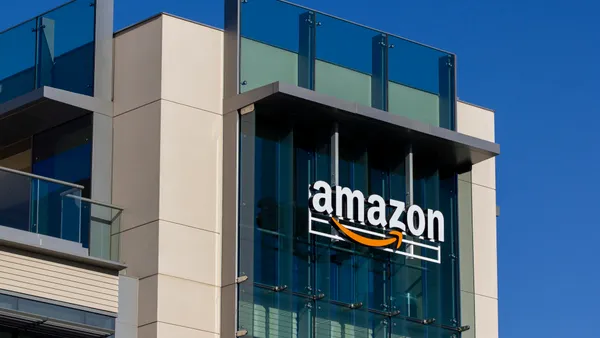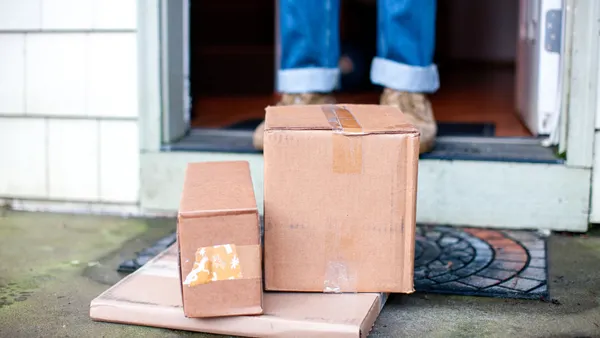Dive Brief:
- Tyson executives expect the U.S. meat supply to increase in the third and fourth quarter of 2020 after coronavirus-related plant shutdowns caused concerns about shortages. "We’re assuming that these plants, not only ours but others will, in fact, they’ll go down for a period of time and then reopen. So, we are actually looking at an increase in total protein available as we go through the balance of Q3, Q4," said CEO Noel White on a Monday earnings call.
- President Donald Trump's executive order designating meat processing plants "critical infrastructure" will help keep the U.S. meat supply flowing, said White. So far seven Tyson facilities have been or remain closed due to outbreaks of COVID-19 at the facilities. The company has rolled out temperature scanners, as well as partitions between workers, personal protective equipment and other operations changes to curtail the spread of the virus in some plants, but COVID-19 cases have continued to increase.
- Pork processing capacity is at roughly 50% of normal, Tyson President Dean Banks said. The company currently has four facilities closed and more operating below max capacity due to worker shortages.
Dive Insight:
The CEO said there had been "some shortages" in recent weeks, but did not predict large-scale or long-term supply disruptions and discussed exporting product to other countries on the call.
White's statements contrast with the full-page ad the company took out in the New York Times April 26 alleging the "food supply chain is breaking." In the ad, White warned there will be limited supply of Tyson products in grocery stores until plants are able to reopen. On the call, White detailed that shortages at grocery stores are also related to demand shifts with restaurants closed and grocery demand high.
The ad preceded Trump's executive order, mandating meat plants keep operating despite large-scale outbreaks in U.S. plants operated by Tyson and others.
"The responsibility of feeding our nation goes beyond any one business. Working together, we’re confident we can mitigate the spread of COVID-19 in our communities and keep it away from our plants and help the food supply chain intact," said White on Monday's call.
When asked if Tyson's plants could build back up to pre-coronavirus capacity given the operational changes, such as social distancing, that must be implemented, White said: "The answer would be yes," though he did not elaborate on how.
As with most supply chain shocks, the impact is felt hardest upstream. With processing capacity down by varying degrees for each livestock category, farmers and ranchers are facing tough decisions.
Hog processing has been particularly impacted by COVID-19 related shutdowns and farmers are beginning to euthanize hogs. Chicken farmers are likely to begin "depopulating" animals too according to the Guardian.
"We recognize how this impacts our producer community and are anxious to safely resume operations at our facilities to provide them with an outlet for their hogs," said White.















